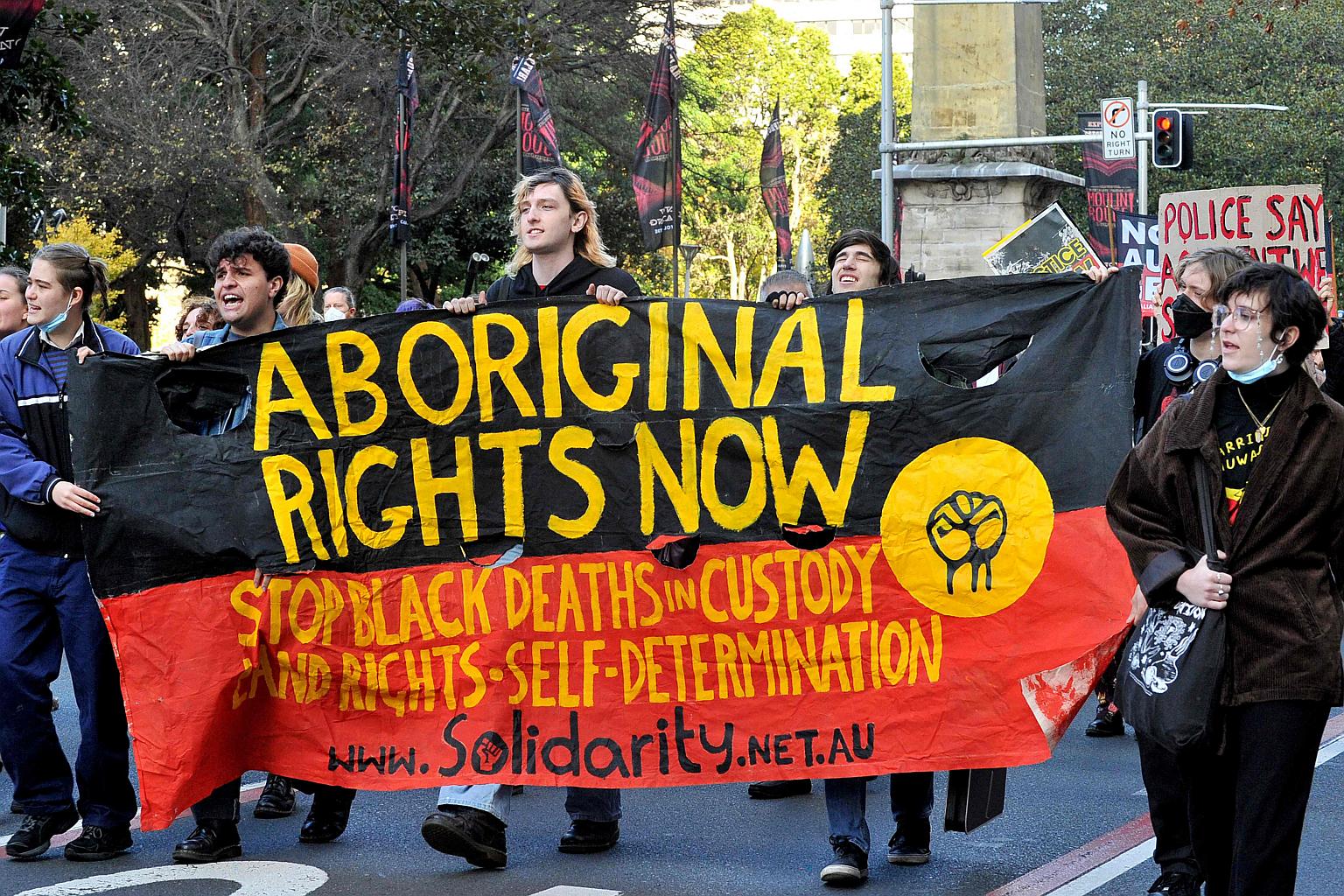Australia is failing to improve the lives of indigenous people
Sign up now: Get insights on Asia's fast-moving developments

Demonstrators shout slogans during a protest rally in Sydney, on June 18, 2022.
PHOTO: AFP
SYDNEY (BLOOMBERG) - Australia's indigenous people, the nation's poorest and most disadvantaged group, are making little ground in their struggle for equality.
Four of nine indicators in an annual survey tracking their social and economic well-being have worsened, including children's schooling and care, adults in prison and the high rate of suicides, according to the government's Closing the Gap report.
Just four targets were met, with the other seeing some improvement.
"There are some disappointing results in the latest figures," Ms Linda Burney, Minister for Indigenous Australians, said in a statement.
"It's clear that more work needs to be done."
The report offers a snapshot of life for aboriginal and Torres Strait Islander people shortly after Mr Anthony Albanese's government won power and pledged a greater focus on indigenous issues.
The Labor leader has committed to the Uluru Statement from the Heart referendum, which seeks constitutional change to enable First Nations peoples to have a voice in Parliament.
On the positive side, most indigenous children are born healthy and engaged in high quality and culturally appropriate early education.
However, just 42 per cent go on to attain a tertiary qualification and 57 per cent of 15-24 year olds are in employment or education, compared with 72 per cent and 80 per cent of non-indigenous people respectively.
The report warned that the trends were estimated using a limited number of data points, making it "difficult to know if the estimated trend is a real one that is likely to continue into future years".
Indigenous Australians have lived on the continent for at least 50,000 years and make up about 3 per cent of the population.


